Carrying the Torch and Honoring the Neptune Firefighters' Legacy
Published on February 01, 2025

This powerful image captures firefighters and leaders from Charlotte Fire, members of the Neptune Fire Society, standing together in commitment to service, mentorship, and honoring the legacy of Black firefighters who paved the way.
By Kevin Campbell, Charlotte Fire
Long before Charlotte was chartered, Black firefighters played a vital role in protecting their community from fire. The Neptunes, an African American volunteer fire company, emerged as a force dedicated to preserving lives and property despite the immense racial barriers they faced. Today, their spirit lives on through the Neptune Fire Society of Charlotte, a group committed to uplifting Black firefighters and ensuring their contributions are honored.
Before the Civil War, Black men were largely excluded from firefighting roles. However, as the city grew, the need for more help combating fires became evident. In 1873, historical records mention the Yellow Jackets, a Black volunteer fire company that soon became known as Neptune No. 3. Despite unreliable equipment and limited resources, the Neptunes gained community respect through their unwavering dedication. A local newspaper at the time praised them, stating, “Few, probably none of the members own any real estate or houses of their own, yet like good citizens they do all in their power to save the houses of others.”
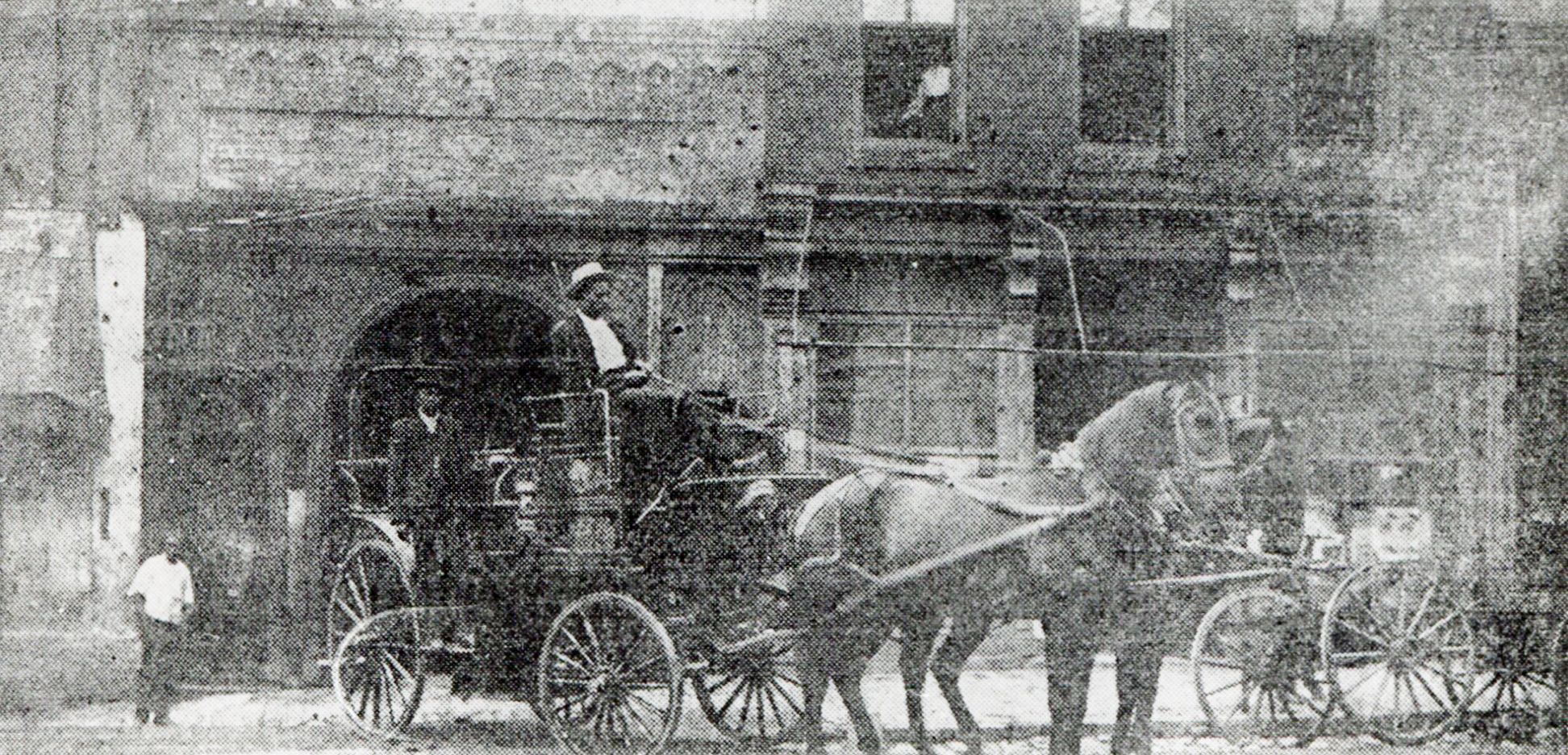
A glimpse into the past: Members of the Neptune No. 3 Fire Company respond to a call in the late 19th century, serving their community despite immense racial challenges.
Over time, as Charlotte transitioned to a fully paid fire department in 1907, Black firefighters were once again excluded. It would take another six decades before Hazel E. Erwin became the first Black firefighter hired by Charlotte Fire in 1967.
In 2018, history was made again when Reginald T. Johnson became the first Black fire chief of Charlotte Fire. He recognizes the sacrifices and determination of those who came before him. “The Neptunes paved the way for the firefighters of today. Their resilience and dedication to service continue to inspire us all,” Chief Johnson said. “Their commitment to protecting this city, even when it was not designed to protect them, is what drives us to continue their legacy.”
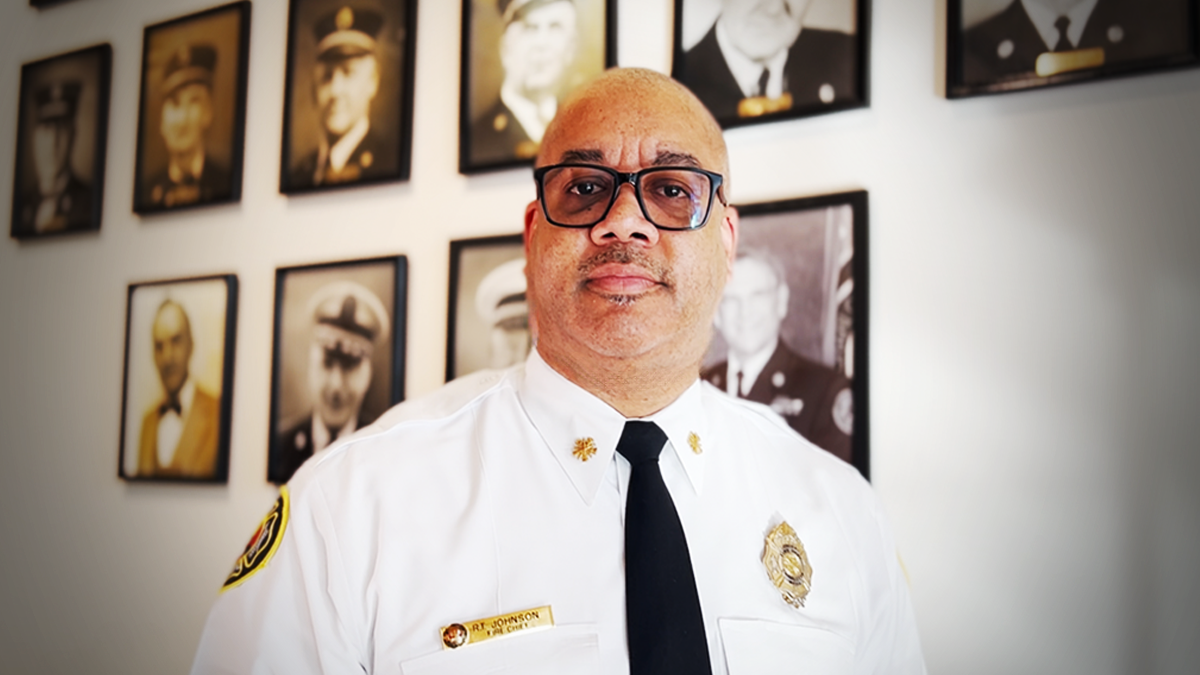
Fire Chief Reginald T. Johnson stands in front of portraits of past Charlotte Fire chiefs, a reminder of the history he now helps shape as the department’s first Black fire chief. His leadership continues the legacy of those who fought for progress and paved the way for future generations of firefighters.
The Neptune Fire Society continues this mission today, providing mentorship, community engagement, and professional development opportunities for underrepresented firefighters. Charlotte Fire Engineer Venessa Roy, president of the Neptune Fire Society, emphasizes its impact: “We want to support and empower underrepresented firefighters as well as the communities we serve,” Roy said. “We are building a network where firefighters can grow, learn, and help each other navigate the challenges of this profession. Our goal is to make sure no firefighter feels like they have to do this alone.”
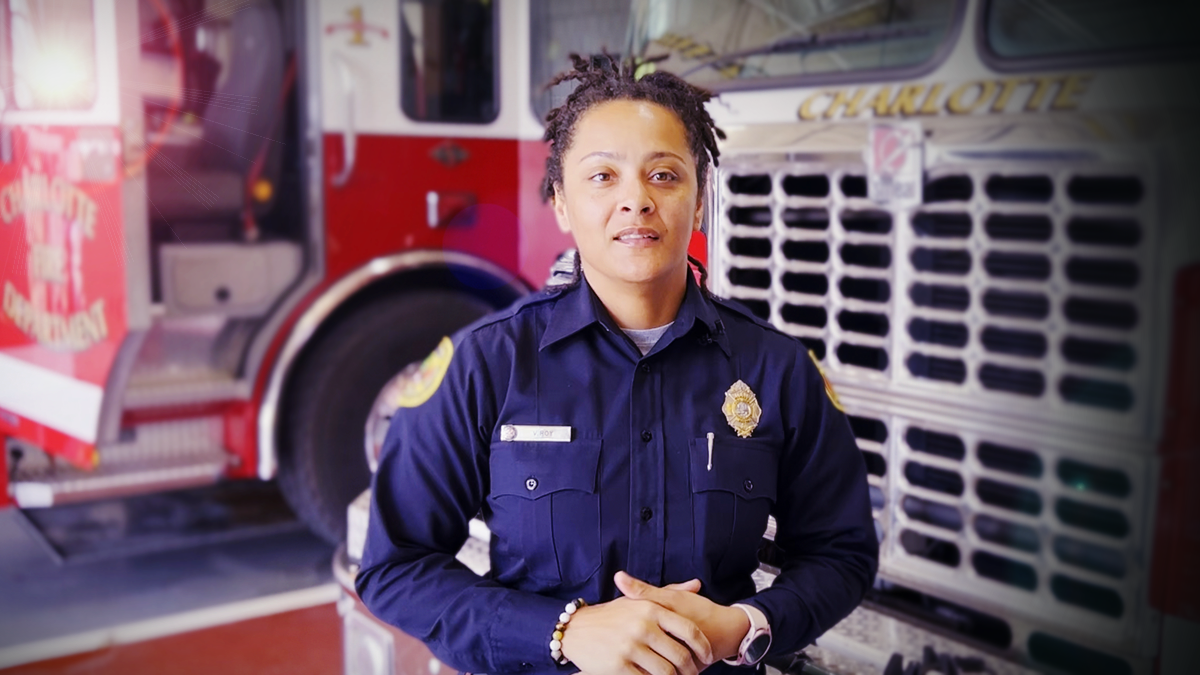
As president of the Neptune Fire Society, Roy leads efforts to provide mentorship and support for Black firefighters while continuing to serve the community through her work with Charlotte Fire.
For many Black firefighters, joining the Neptune Fire Society has provided a sense of community and professional growth. Engineer Devon Hood, who has been with Charlotte Fire since 2015, credits the organization with helping him navigate his career. “Representation matters. The Neptunes have given minority firefighters a voice and a platform,” Hood said.
Hood's journey into firefighting was not a conventional one. Coming from a background in banking, he found himself drawn to the profession by the security it provided and the opportunity to help others. “I didn’t grow up wanting to be a firefighter,” he admitted. “But once I got into it, I knew it was where I belonged. The Neptune Fire Society gave me the confidence to push forward and reach my full potential.”
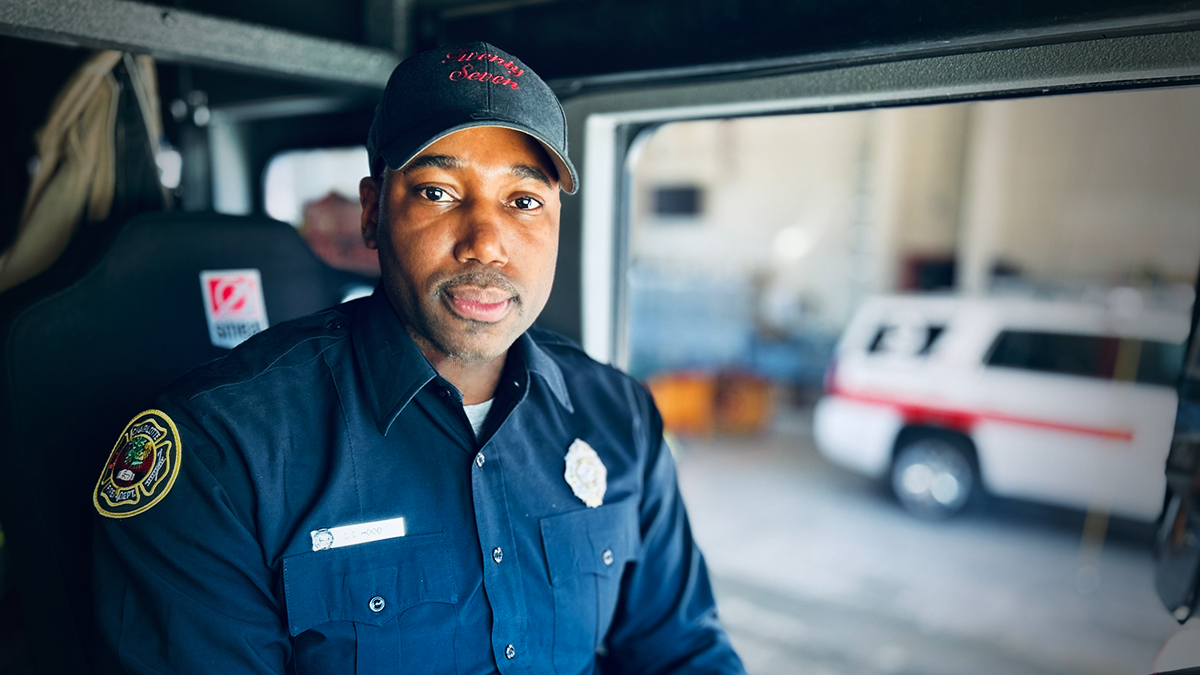
Transitioning from a career in banking, Hood found his purpose in firefighting. The Neptune Fire Society played a crucial role in helping him navigate the challenges of the fire service.
Hood recalls that his path to getting hired was anything but smooth. He applied multiple times before getting a spot, struggling to figure out how to stand out in such a competitive field. It wasn’t until he connected with veteran firefighter Jackie Gilmore, who saw his determination and helped guide him through the process, that he finally got his chance. “I was ready to give up,” Hood said. “But having someone in my corner, someone who believed in me, that changed everything. That’s exactly what the Neptunes do for new firefighters today.”
The Neptune Fire Society is a vital source of mentorship and guidance, but it is just one of many avenues available for Charlotte Fire’s firefighters. The department offers a variety of training programs, leadership development courses, and support networks aimed at helping all firefighters—regardless of background—advance in their careers. The Neptunes complement these opportunities by providing a space where minority firefighters can connect with mentors who share similar experiences, reinforcing a broader culture of growth and support within Charlotte Fire.
That support and mentorship is something many firefighters echo. The Neptune Fire Society ensures that members have the tools they need to succeed and grow in their careers.
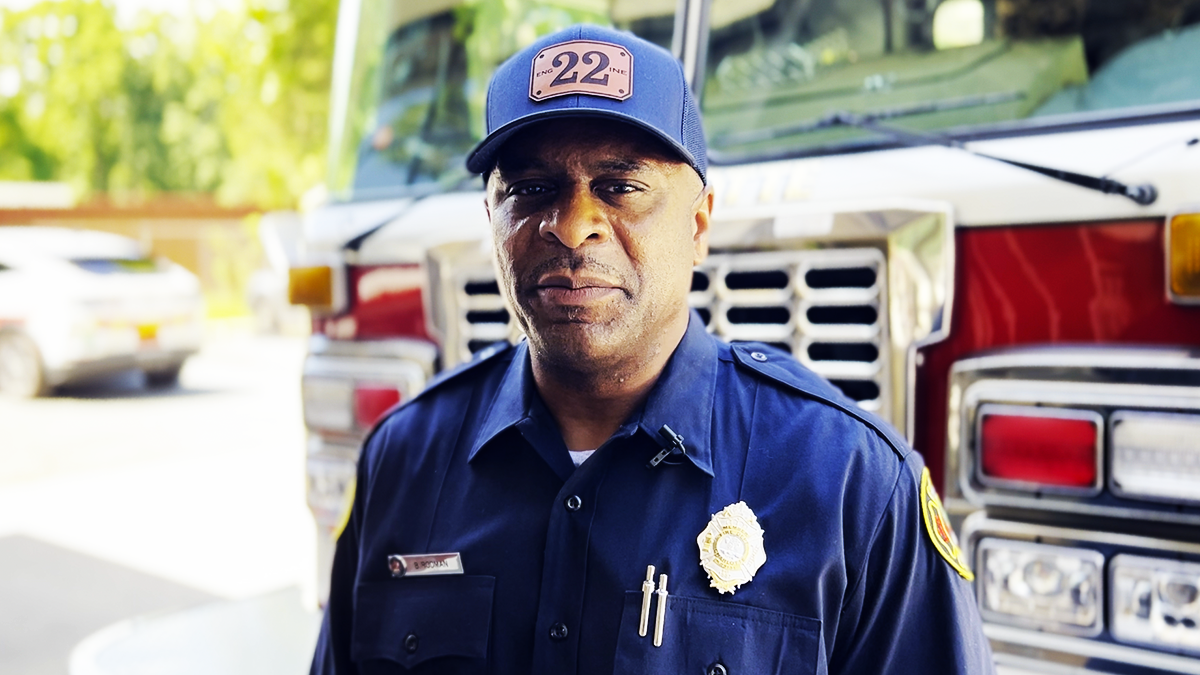
Engineer Brian Rodman reflects on the impact of mentorship and representation in the fire service. His experience highlights the importance of building a supportive network for firefighters navigating the challenges of the profession.
Engineer Brian Rodman, a 20-year veteran of Charlotte Fire, reflects on how the organization has shaped the careers of many. Throughout his career, he has seen firsthand how mentorship and representation have changed the landscape for Black firefighters in Charlotte.
While the road has not always been easy, Rodman credits the Neptune Fire Society with helping firefighters overcome barriers and instill confidence in those coming up the ranks. “When I started, there were fewer of us, and the road wasn’t always easy. But we stuck together,” Rodman shared. “When you look at our history and where we’ve come, you realize we are part of something much bigger.”
Rodman remembers a time when simply seeing another Black firefighter on shift was a rarity. The sense of isolation could be overwhelming, and there were moments he questioned whether he truly belonged. But through the years, the Neptune Fire Society helped bridge that gap, giving Black firefighters a network of people who understood the struggles they faced. “It’s more than just professional development,” he said. “It’s knowing you’re not alone. It’s knowing that when you walk into a firehouse, there are people who have your back and who want to see you succeed.”
Before joining Charlotte Fire, many Black firefighters found themselves seeking a sense of belonging, a network of support, and a group that could guide them through the challenges of the profession. Among them is Captain Caston Brown-Butler, a U.S. Navy veteran who served a tour in Iraq before transitioning to the fire service. Originally from Gastonia, Brown-Butler now leads one of Charlotte's busiest engine companies at Firehouse 22.

A U.S. Navy veteran and Charlotte Fire captain, Brown-Butler leads one of the city’s busiest engine companies at Firehouse 22, serving the historic Hidden Valley community with dedication and pride.
Brown-Butler sees his role as more than just responding to emergencies—he believes in being a servant to the community. “Serving the Hidden Valley community is a privilege,” Brown-Butler said. “It’s a neighborhood rich in culture and history, and every day we get to be a part of something bigger than ourselves. It’s about more than just answering calls—it’s about making an impact.”
He notes that the visibility of Black firefighters in the community has a profound effect. “People stop us all the time, take pictures, give hugs, and tell us how much it means to see firefighters who look like them,” he said. “We still have people who are surprised to see an all-Black shift running calls. That just tells me we have more work to do.”
His station runs anywhere from 14 to 20 calls a day, making it one of the most active in the city. Despite the workload, Brown-Butler embraces the responsibility, seeing each call as another opportunity to serve and inspire the next generation of firefighters. The Neptune Fire Society has become that guiding force, offering mentorship and leadership for those striving to make an impact in the fire service.
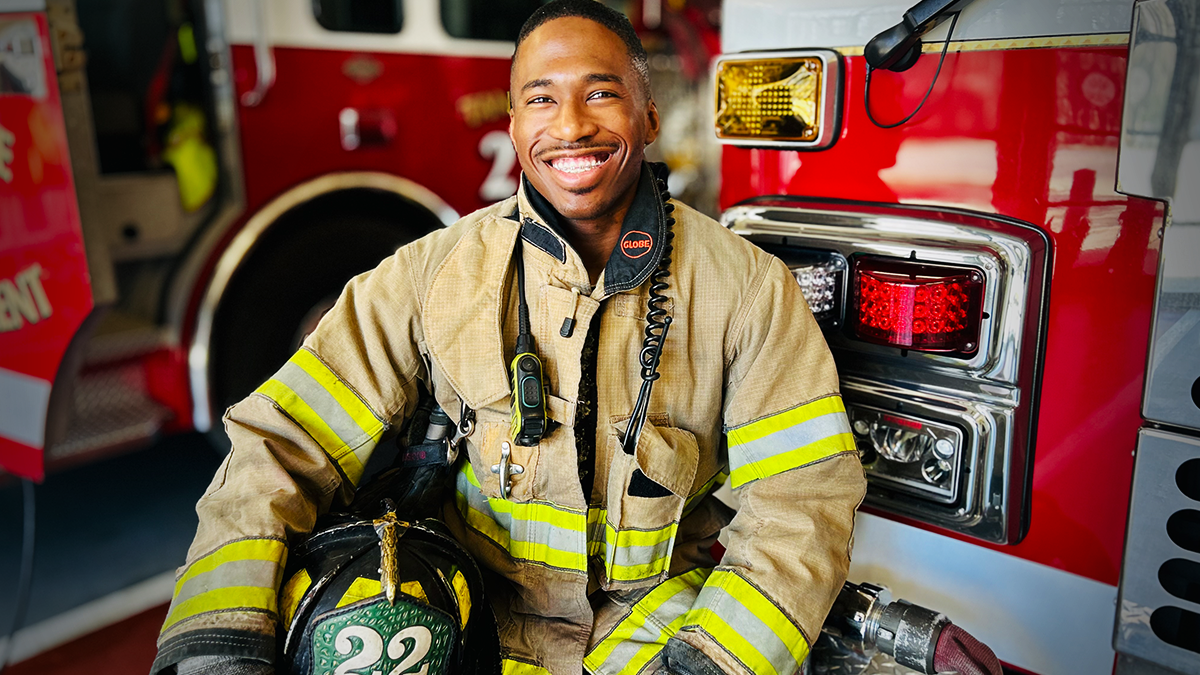
Pearson highlights the importance of mentorship in the fire service, emphasizing how the Neptune Fire Society ensures that new firefighters never feel alone in their journey.
Firefighter Jeems Pearson also found inspiration and motivation within the organization. “Mentorship is the foundation of what we do,” Pearson said. “It’s not just about passing on knowledge; it’s about making sure no one gets left behind. The fire service can be overwhelming, especially for someone coming in without strong connections. The Neptunes made sure I never felt alone. They held me accountable, pushed me to be better, and showed me that I had a place in the fire service. That kind of support is what keeps you going on the hardest days.”
Firefighter Bryant Bullock of Firehouse 22 joined the organization early in his career, seeking guidance and a sense of direction. Coming into the fire service with no prior experience, he often felt uncertain about his abilities and struggled with self-doubt. But through the Neptune Fire Society, he found not just mentorship, but a brotherhood that pushed him to grow.

With no prior experience in the fire service, Bullock credits the Neptune Fire Society for guiding him through the early challenges of his career and helping him find confidence in his abilities.
“I had no background in firefighting, and I didn’t know where to turn,” Bullock said. “But the Neptune Fire Society took me in and showed me the ropes. They believed in me when I wasn’t sure I could do it myself. Their support helped me find my confidence, and now I stand stronger, knowing I’m part of something bigger than myself.”
As Black History Month serves as a time to reflect on the resilience and contributions of Black Americans, the Neptune Fire Society stands as a powerful example of perseverance and progress. The historic Neptune hand-pumper now rests at Charlotte Fire Headquarters, a testament to the determination of those who came before. Their legacy is alive in every firefighter who joins the ranks, carrying forward the same commitment to service that defined the Neptunes of the past.
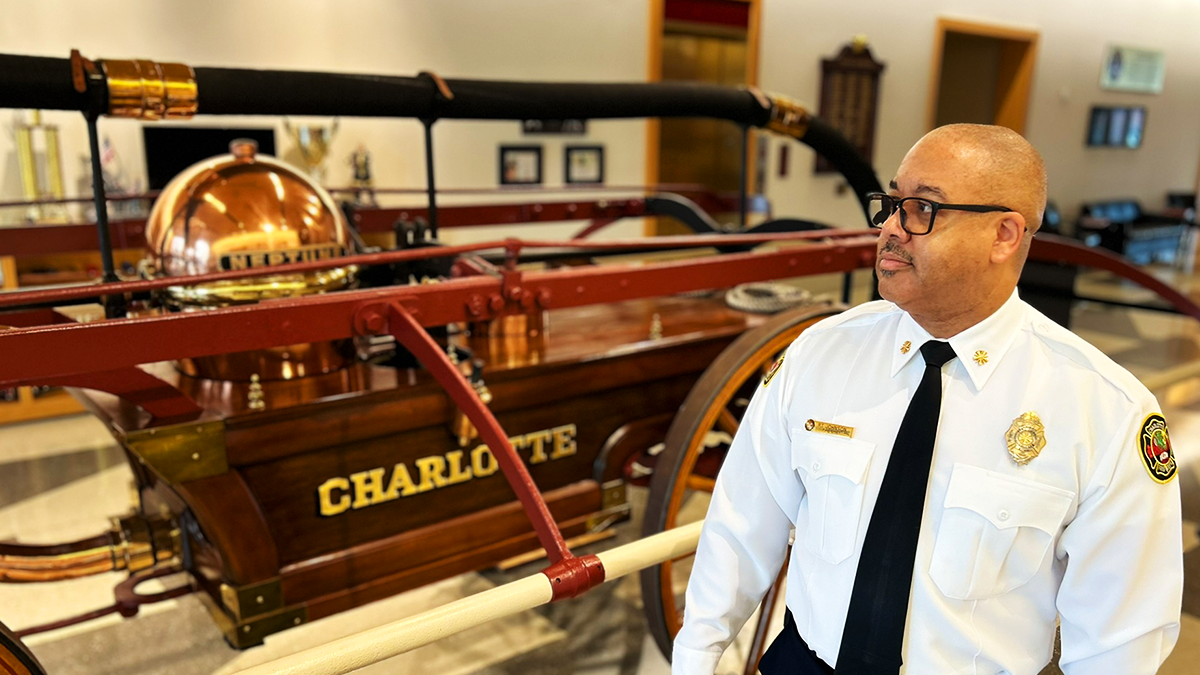
Charlotte Fire Chief Reginald T. Johnson stands in front of the historic Neptune hand-pumper at Charlotte Fire Headquarters, a lasting symbol of the legacy and resilience of Black firefighters in the city's history.
In the words of Fire Chief Johnson, “Our past shapes our future. We honor the Neptunes not just by remembering their story, but by carrying forward their mission of service, excellence, and dedication to those who follow in their footsteps. Their sacrifices laid the foundation for the generations of firefighters who serve today, and it is our responsibility to uphold their legacy with the same courage and commitment.”
LEARN MORE ABOUT NEPTUNE FIRE SOCIETY